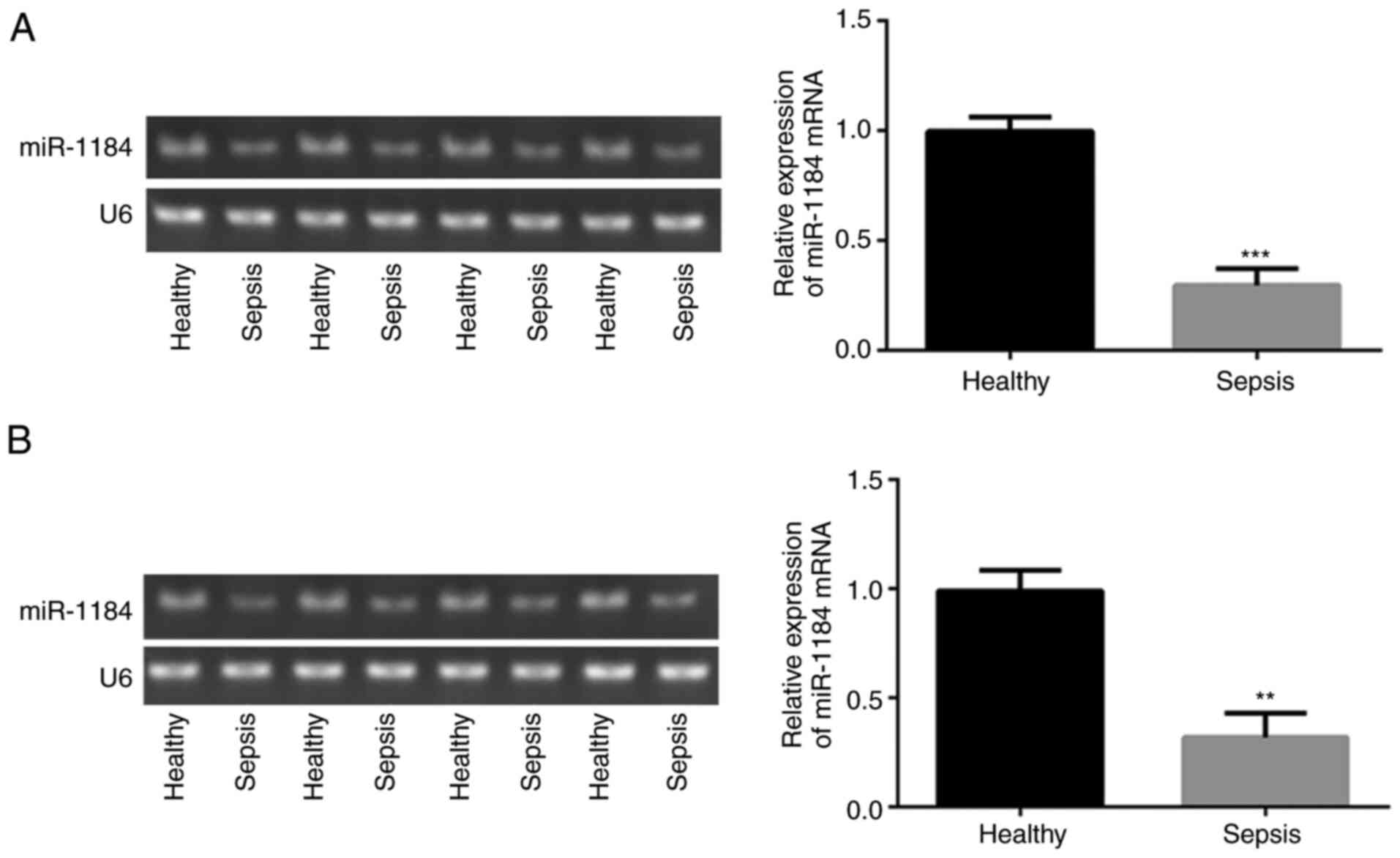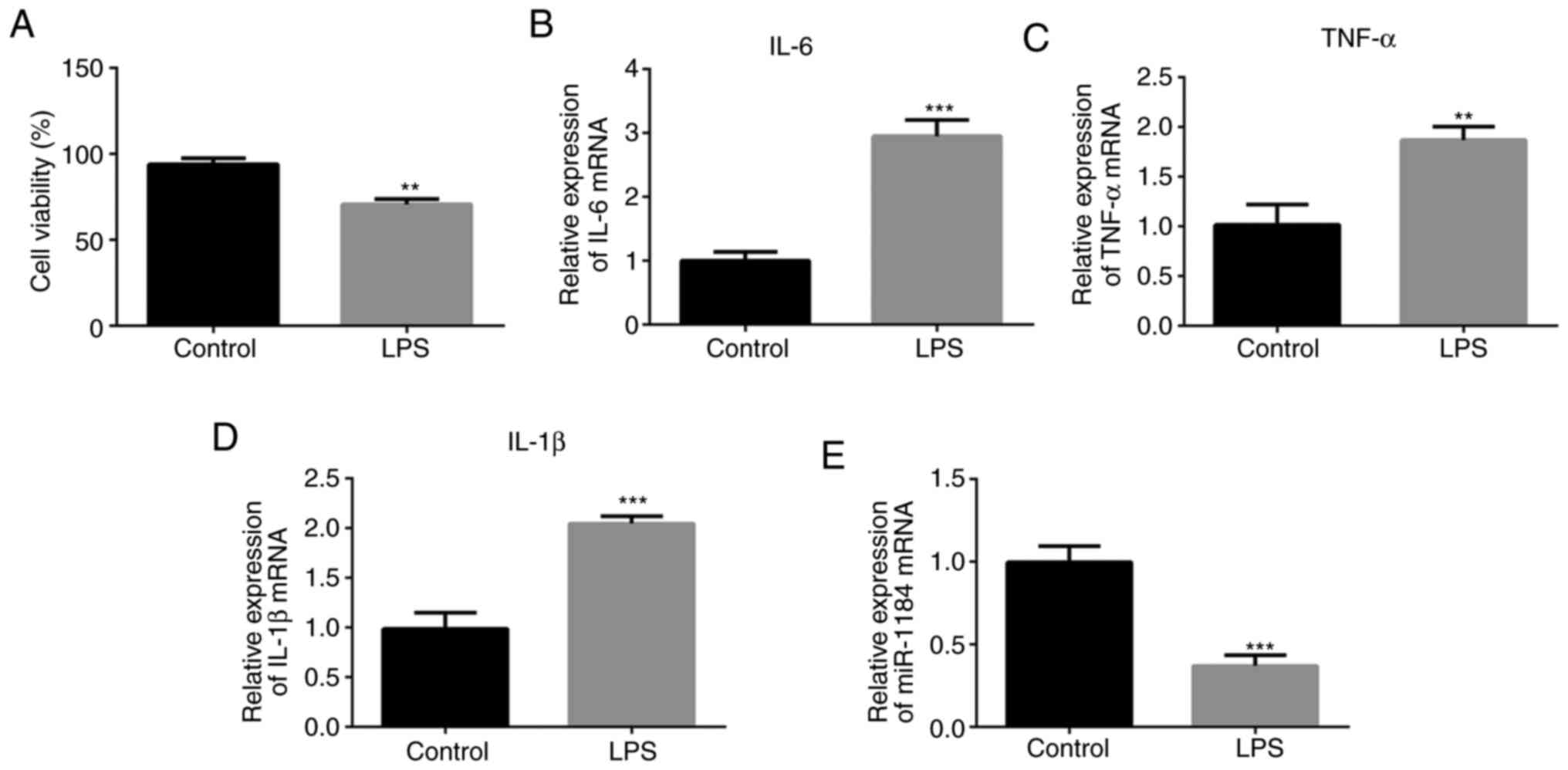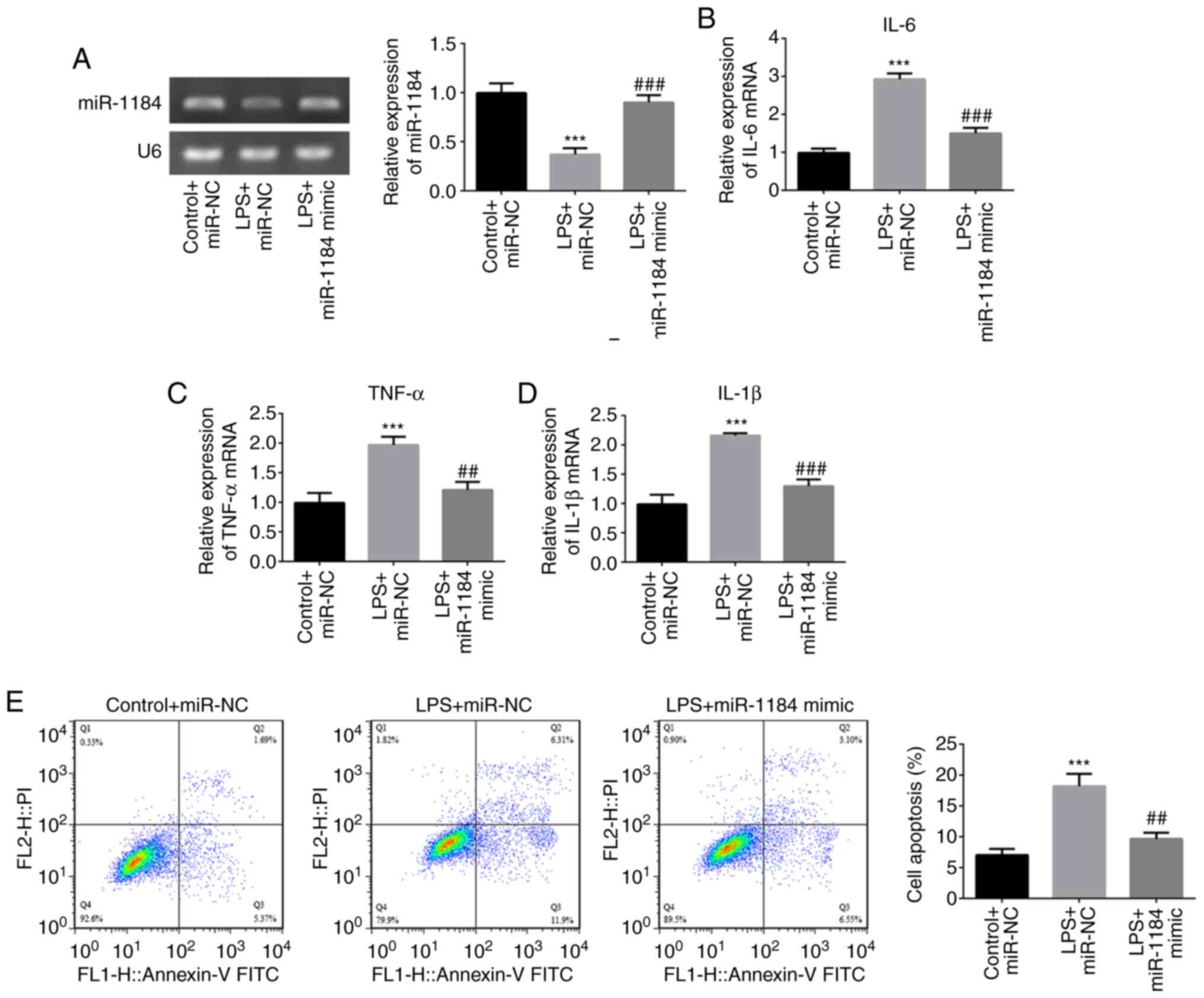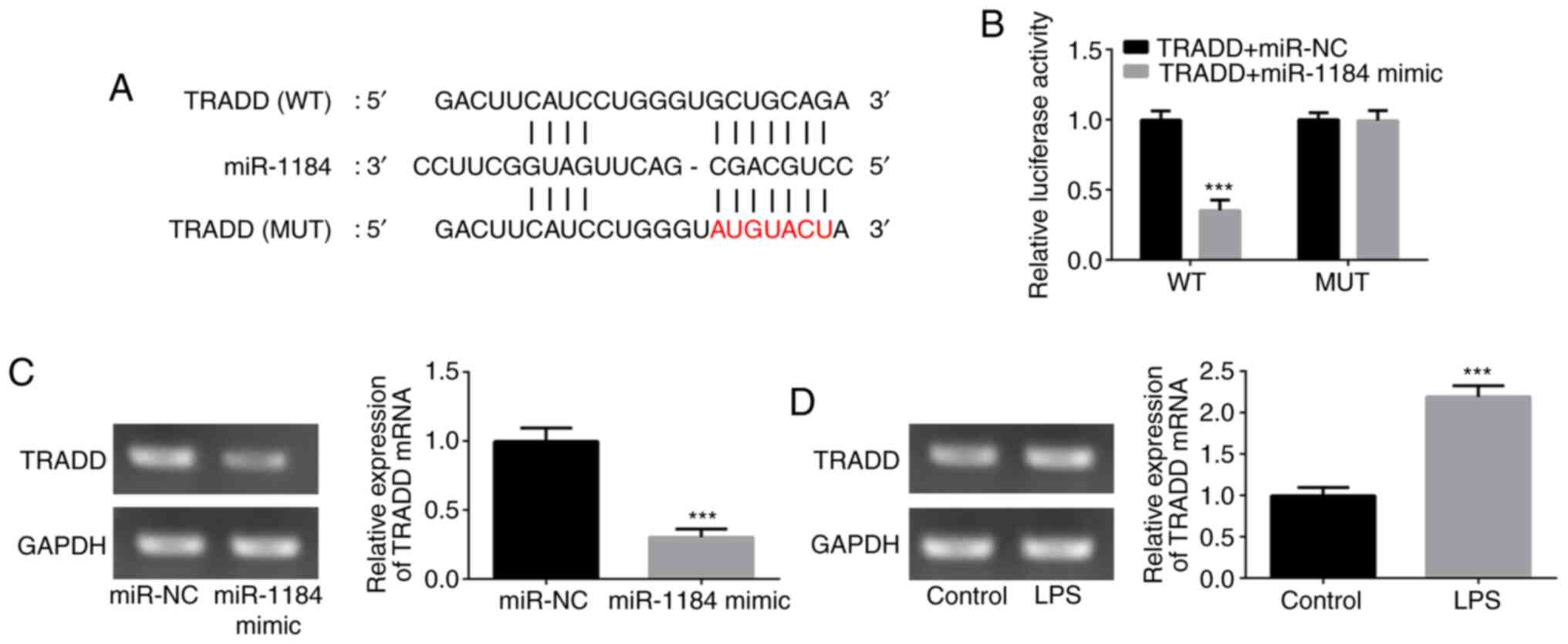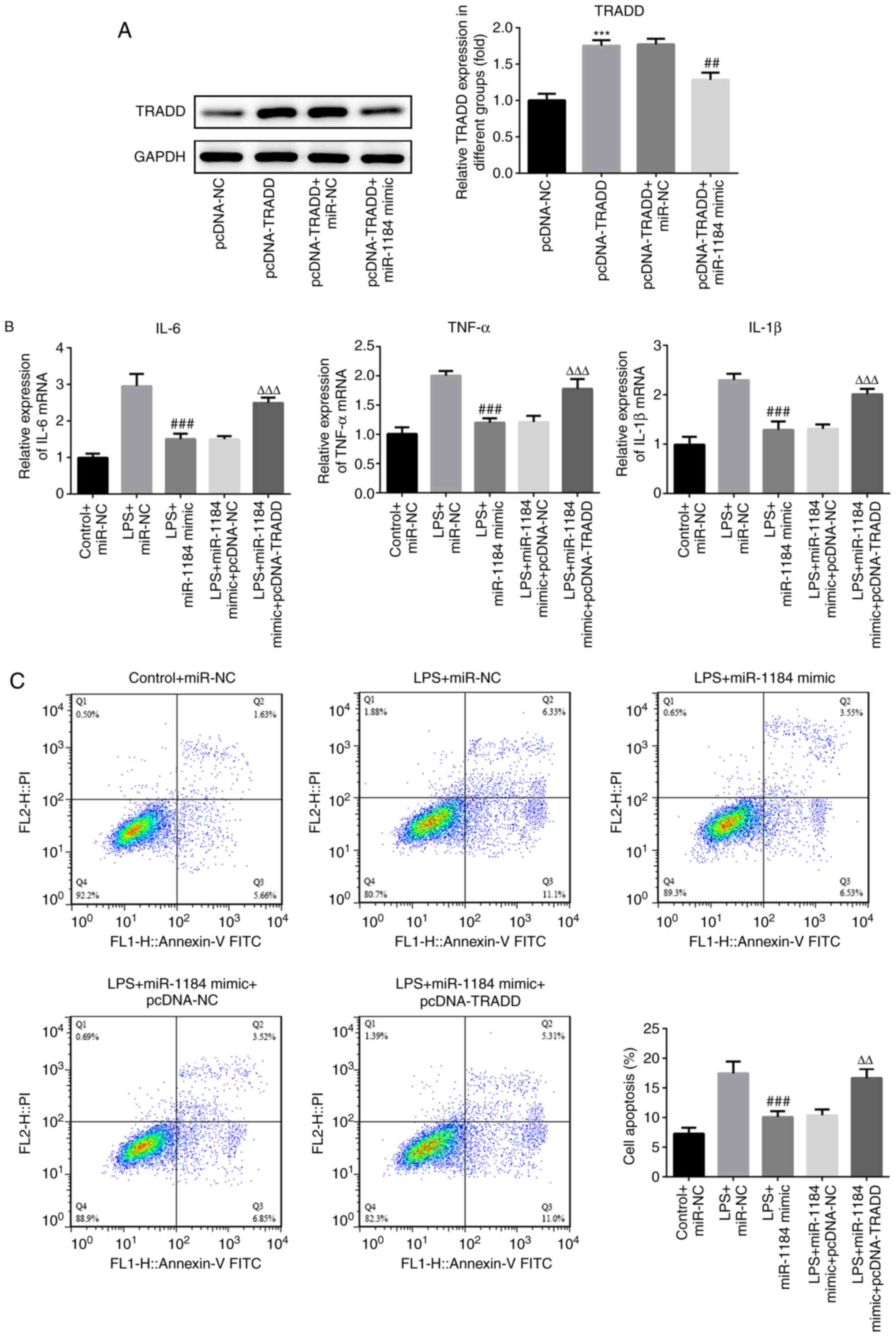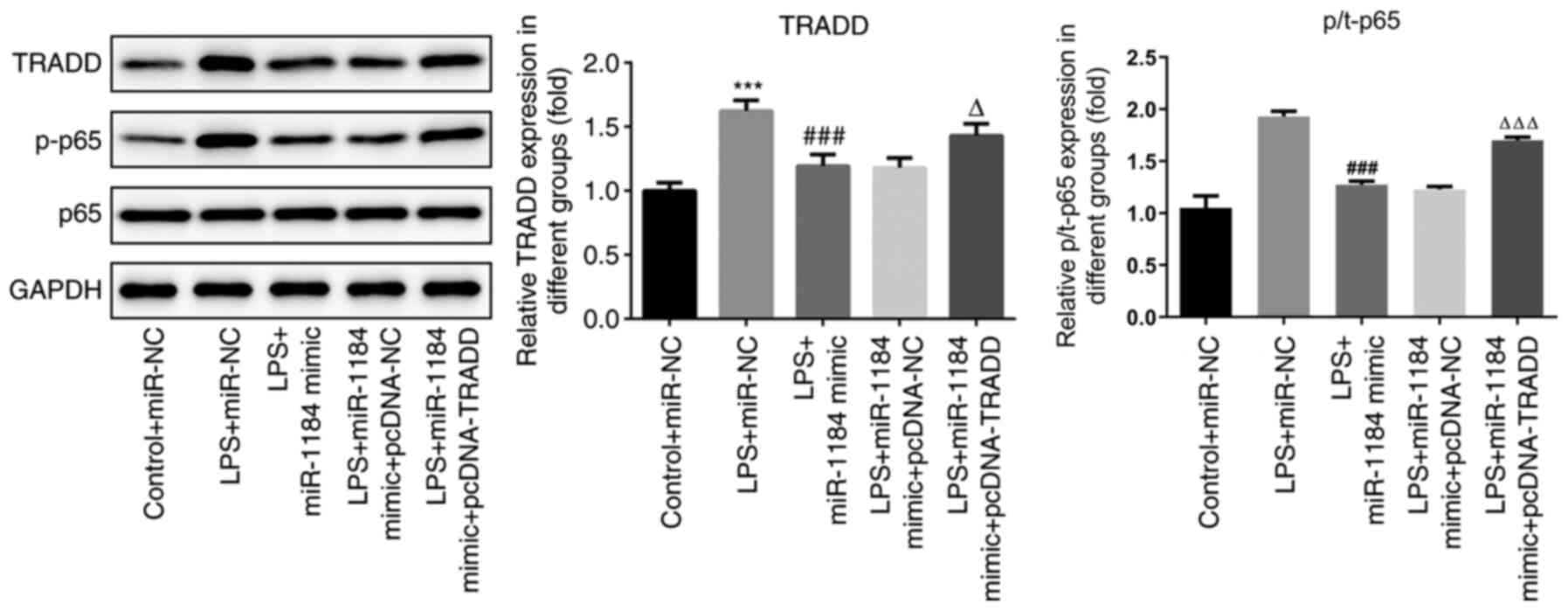|
1
|
Vincent JL, Opal SM, Marshall JC and
Tracey KJ: Sepsis definitions: Time for change. Lancet.
381:774–775. 2013.PubMed/NCBI View Article : Google Scholar
|
|
2
|
Angus DC, Linde-Zwirble WT, Lidicker J,
Clermont G, Carcillo J and Pinsky MR: Epidemiology of severe sepsis
in the United States: Analysis of incidence, outcome, and
associated costs of care. Crit Care Med. 29:1303–1310.
2001.PubMed/NCBI View Article : Google Scholar
|
|
3
|
Skrupky LP, Kerby PW and Hotchkiss RS:
Advances in the management of sepsis and the understanding of key
immunologic defects. Anesthesiology. 115:1349–1362. 2011.PubMed/NCBI View Article : Google Scholar
|
|
4
|
Zilberberg MD, Shorr AF, Micek ST,
Vazquez-Guillamet C and Kollef MH: Multi-drug resistance,
inappropriate initial antibiotic therapy and mortality in
Gram-negative severe sepsis and septic shock: A retrospective
cohort study. Crit Care. 18(596)2014.PubMed/NCBI View Article : Google Scholar
|
|
5
|
Martin GS, Mannino DM and Moss M: The
effect of age on the development and outcome of adult sepsis. Crit
Care Med. 34:15–21. 2006.PubMed/NCBI View Article : Google Scholar
|
|
6
|
Cecconi M, Evans L, Levy M and Rhodes A:
Sepsis and septic shock. Lancet. 392:75–87. 2018.PubMed/NCBI View Article : Google Scholar
|
|
7
|
Plunkett A and Tong J: Sepsis in children.
BMJ. 350(h3017)2015.PubMed/NCBI View Article : Google Scholar
|
|
8
|
Martinot A, Leclerc F, Cremer R, Leteurtre
S, Fourier C and Hue V: Sepsis in neonates and children:
Definitions, epidemiology, and outcome. Pediatr Emerg Care.
13:277–281. 1997.PubMed/NCBI View Article : Google Scholar
|
|
9
|
Ambros V: The functions of animal
microRNAs. Nature. 431:350–355. 2004.PubMed/NCBI View Article : Google Scholar
|
|
10
|
Bartel DP: MicroRNAs: Genomics,
biogenesis, mechanism, and function. Cell. 116:281–297.
2004.PubMed/NCBI View Article : Google Scholar
|
|
11
|
Ward LD and Kellis M: HaploReg v4:
Systematic mining of putative causal variants, cell types,
regulators and target genes for human complex traits and disease.
Nucleic Acids Res. 44:D877–D881. 2016.PubMed/NCBI View Article : Google Scholar
|
|
12
|
Tufekci KU, Oner MG, Meuwissen RL and Genc
S: The role of microRNAs in human diseases. Methods Mol Biol.
1107:33–50. 2014.PubMed/NCBI View Article : Google Scholar
|
|
13
|
Wang X, Wang X, Liu X, Wang X, Xu J, Hou
S, Zhang X and Ding Y: miR-15a/16 are upreuglated in the serum of
neonatal sepsis patients and inhibit the LPS-induced inflammatory
pathway. Int J Clin Exp Med. 8:5683–5690. 2015.PubMed/NCBI
|
|
14
|
Sheng B, Zhao L, Zang X, Zhen J and Chen
W: miR-375 ameliorates sepsis by downregulating miR-21 level via
inhibiting JAK2-STAT3 signaling. Biomed Pharmacother. 86:254–261.
2017.PubMed/NCBI View Article : Google Scholar
|
|
15
|
Chen J, Jiang S, Cao Y and Yang Y: Altered
miRNAs expression profiles and modulation of immune response genes
and proteins during neonatal sepsis. J Clin Immunol. 34:340–348.
2014.PubMed/NCBI View Article : Google Scholar
|
|
16
|
Cheng Q, Tang L and Wang Y: Regulatory
role of miRNA-26a in neonatal sepsis. Exp Ther Med. 16:4836–4842.
2018.PubMed/NCBI View Article : Google Scholar
|
|
17
|
How CK, Hou SK, Shih HC, Huang MS, Chiou
SH, Lee CH and Juan CC: Expression profile of MicroRNAs in
gram-negative bacterial sepsis. Shock. 43:121–127. 2015.PubMed/NCBI View Article : Google Scholar
|
|
18
|
Livak KJ and Schmittgen TD: Analysis of
relative gene expression data using real-time quantitative PCR and
the 2(-Delta Delta C(T)) method. Methods. 25:402–408.
2001.PubMed/NCBI View Article : Google Scholar
|
|
19
|
Muller MC, Meijers JC, Vroom MB and
Juffermans NP: Utility of thromboelastography and/or
thromboelastometry in adults with sepsis: A systematic review. Crit
Care. 18(R30)2014.PubMed/NCBI View
Article : Google Scholar
|
|
20
|
Hermans G and Van den Berghe G: Clinical
review: Intensive care unit acquired weakness. Crit Care.
19(274)2015.PubMed/NCBI View Article : Google Scholar
|
|
21
|
Pavlakou P, Liakopoulos V, Eleftheriadis
T, Mitsis M and Dounousi E: Oxidative stress and acute kidney
injury in critical illness: Pathophysiologic
mechanisms-biomarkers-interventions, and future perspectives. Oxid
Med Cell Longev. 2017(6193694)2017.PubMed/NCBI View Article : Google Scholar
|
|
22
|
Lenkala D, LaCroix B, Gamazon ER, Geeleher
P, Im HK and Huang RS: The impact of microRNA expression on
cellular proliferation. Hum Genet. 133:931–938. 2014.PubMed/NCBI View Article : Google Scholar
|
|
23
|
Dvinge H, Git A, Graf S, Salmon-Divon M,
Curtis C, Sottoriva A, Zhao Y, Hirst M, Armisen J, Miska EA, et al:
The shaping and functional consequences of the microRNA landscape
in breast cancer. Nature. 497:378–382. 2013.PubMed/NCBI View Article : Google Scholar
|
|
24
|
Melton C, Judson RL and Blelloch R:
Opposing microRNA families regulate self-renewal in mouse embryonic
stem cells. Nature. 463:621–626. 2010.PubMed/NCBI View Article : Google Scholar
|
|
25
|
Tsitsiou E and Lindsay MA: microRNAs and
the immune response. Curr Opin Pharmacol. 9:514–520.
2009.PubMed/NCBI View Article : Google Scholar
|
|
26
|
Wu M, Gu JT, Yi B, Tang ZZ and Tao GC:
microRNA-23b regulates the expression of inflammatory factors in
vascular endothelial cells during sepsis. Exp Ther Med.
9:1125–1132. 2015.PubMed/NCBI View Article : Google Scholar
|
|
27
|
Yang D, Qian H, Fang Z, Xu A, Zhao S, Liu
B and Li D: Silencing circular RNA VANGL1 inhibits progression of
bladder cancer by regulating miR-1184/IGFBP2 axis. Cancer Med.
9:700–710. 2020.PubMed/NCBI View Article : Google Scholar
|
|
28
|
Danza K, De Summa S, Pinto R, Pilato B,
Palumbo O, Carella M, Popescu O, Digennaro M, Lacalamita R and
Tommasi S: TGFbeta and miRNA regulation in familial and sporadic
breast cancer. Oncotarget. 8:50715–50723. 2017.PubMed/NCBI View Article : Google Scholar
|
|
29
|
Knyazev EN, Fomicheva KA, Mikhailenko DS,
Nyushko KM, Samatov TR, Ya Alekseev B and Yu Shkurnikov M: Plasma
levels of hsa-miR-619-5p and hsa-miR-1184 differ in prostatic
benign hyperplasia and cancer. Bull Exp Biol Med. 161:108–111.
2016.PubMed/NCBI View Article : Google Scholar
|
|
30
|
Smillie CL, Sirey T and Ponting CP:
Complexities of post-transcriptional regulation and the modeling of
ceRNA crosstalk. Crit Rev Biochem Mol Biol. 53:231–245.
2018.PubMed/NCBI View Article : Google Scholar
|
|
31
|
Chen NJ, Chio IIC, Lin WJ, Duncan G, Chau
H, Katz D, Huang HL, Pike KA, Hao Z, Su YW, et al: Beyond tumor
necrosis factor receptor: TRADD signaling in toll-like receptors.
Proc Natl Acad Sci USA. 105:12429–12434. 2008.PubMed/NCBI View Article : Google Scholar
|
|
32
|
Wilson NS, Dixit V and Ashkenazi A: Death
receptor signal transducers: Nodes of coordination in immune
signaling networks. Nat Immunol. 10:348–355. 2009.PubMed/NCBI View
Article : Google Scholar
|
|
33
|
Shukla K, Sharma AK, Ward A, Will R,
Hielscher T, Balwierz A, Breunig C, Münstermann E, König R,
Keklikoglou I and Wiemann S: MicroRNA-30c-2-3p negatively regulates
NF-kB signaling and cell cycle progression through downregulation
of TRADD and CCNE1 in breast cancer. Mol Oncol. 9:1106–1119.
2015.PubMed/NCBI View Article : Google Scholar
|















